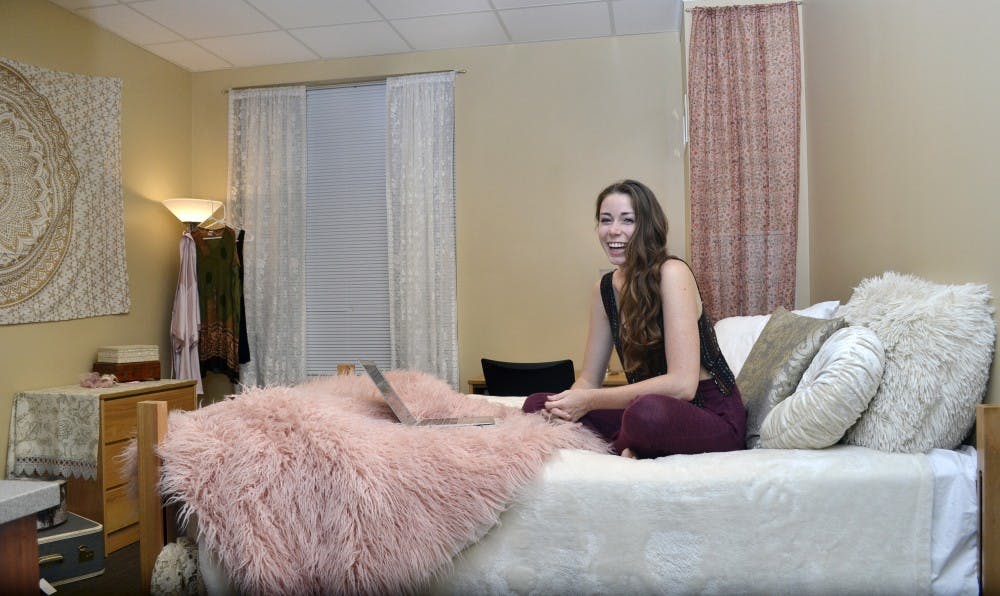After settling into life at Elon University, students on the second floor of Sloan residence hall foster their community over a table of Chinese take-out.
Sophomore Olivia (Livi) Murray, SGA class president of her grade and second floor Sloan’s Residential Assistant (RA), organized this gathering as a way for her hall to take time and talk about their days.
Although they may primarily work behind the scenes, RAs do in fact face unique challenges within the residence halls, primarily balancing their roles as mentors and friends.
Before she set foot on campus, Murray knew she wanted to be an RA — in hopes of being an older sister figure to her residents.
“Having that experience is something I had planned on,” Murray said. “I’ve always loved talking to people ... I just wanted to give back to the community.”
Senior Annaliese Jaffe, RA for second floor Global D, expressed similar motives for becoming a RA for her third year.
“I look forward to coming home to them every day,” Jaffe said in reference to her residents.
Having experienced a close relationship with her first-year RA, Jaffe wanted to create a similar sense of family in her various residencies during her time at Elon
Being an RA for groups of students coming from many different backgrounds can be challenging in ways one wouldn’t expect.
Sophomore Aileen Bell, the RA for the College Fellows LLC in Isabella Cannon Pavilion, said “I constantly feel like I’m carrying the emotional baggage of nineteen people who haven’t actually unloaded their emotional baggage on me. I just want to make sure they’re happy.”
While Bell faces the emotional difficulties of being an RA, there are aspects of her identity she finds advantageous.
“My race is an advantage for me,” Bell said. “There are some people in my staff who respond better to me and my white coworkers.”
Sophomore Abi Mathews highlighted different challenges she faced as both an RA and a person of color (POC).
Mathews, who encounters microaggressions in her hall, believes it is due to some of her residents “having only grown up seeing the world one way.”
As their RA and a POC, she’s learning to “graciously correct them,” but sometimes feels her “voice is drowned out” in the process.
Similarly, Murray discussed concerns present in her POC community of RAs about potential residents with outspoken ideals that could make other students uncomfortable.
Murray feels being an RA has enhanced her leadership skills and learning how to deal with different viewpoints.
“I wouldn’t necessarily treat them any way, it’s just making sure that they don’t make anyone else uncomfortable by spreading their views” Murray said.
Jaffe expressed similar concerns primarily focused on the issue of her inability to fully relate to students of color who are dealing with issues of microaggressions.
“During the past election I went back to West where I was the RA and I had two of my residents who were black come up to me and we were just sobbing together … I wanted to be there for them,” Jaffe said. “I don’t ever want to overstep my empathizing.”


